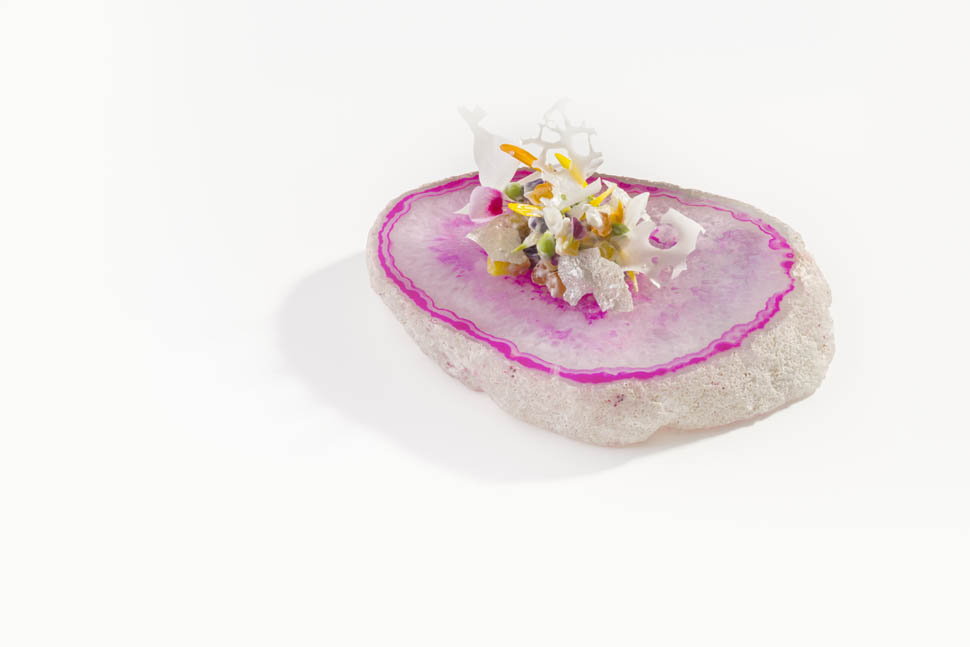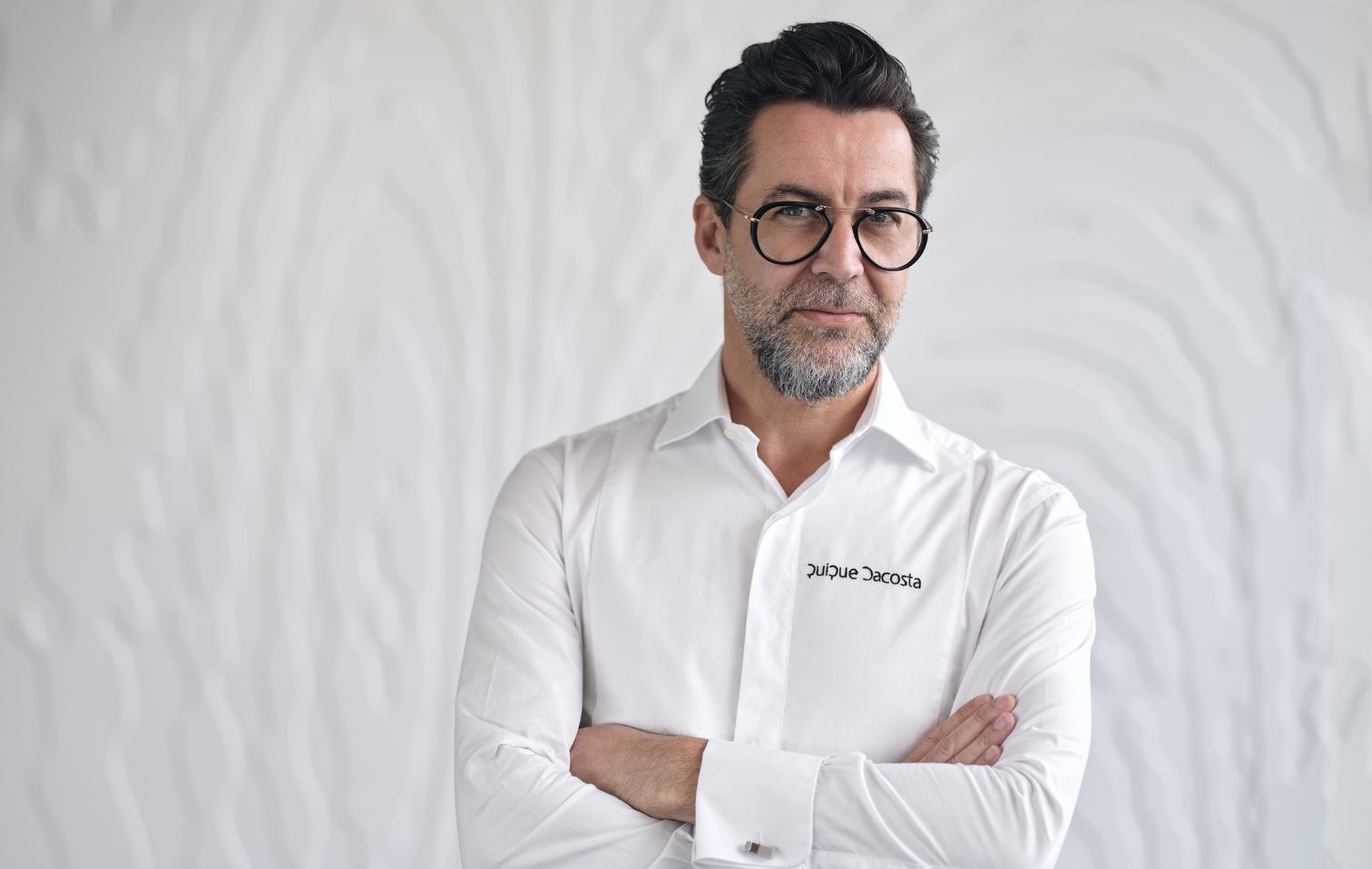At the halfway point of fifty years, Quique Dacosta no longer has to answer to anyone. But he can also express some grievances. "We live in a kind of bubble, where the essence of a restaurant takes a back seat. But the blame lies with the restaurant industry, which has placed companies in the pyramid to which it has given a veneer of beauty and luxury, without them having anything to do with the values of gastronomy."
The opinion
With 35 years in the industry and currently holding 7 Michelin stars, Quique Dacosta can voice his opinions without holding back. His grandmother and mother, both seamstresses by profession, instilled in him a sense of beauty, which he now showcases in his 13 restaurants. In the last two seasons, he has created 170 original dishes. To maintain his unique style, he hasn't read cookbooks for twenty years and has even stopped following critics. Someone reliable warns him if adjustments are needed. "But I no longer have to answer to anyone."
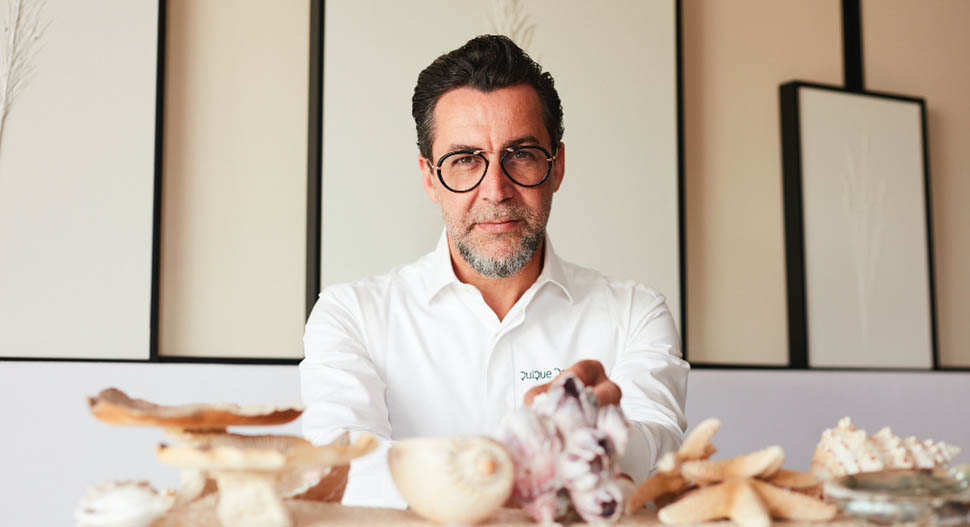
The latest menu at his three-star eponymous restaurant is titled "Por amor al arte" (For the love of art) and reflects the current situation: the confidence of maturity, not needing to prove anything to anyone anymore, satisfaction with achieved results, and the completeness of his style. If the restaurant is fully booked months in advance, it's because guests have complete trust. "As much as we intellectuals can do, we must not lose sight of the basics, namely pleasing the people. I'm talking about flavor, about the fact that the dish is aesthetically and gustatorily pleasing, worthy of 9.75 or 10, the three Michelin stars. Beyond taste, there's a fundamental value in what we do: bringing innovation to the culinary world.
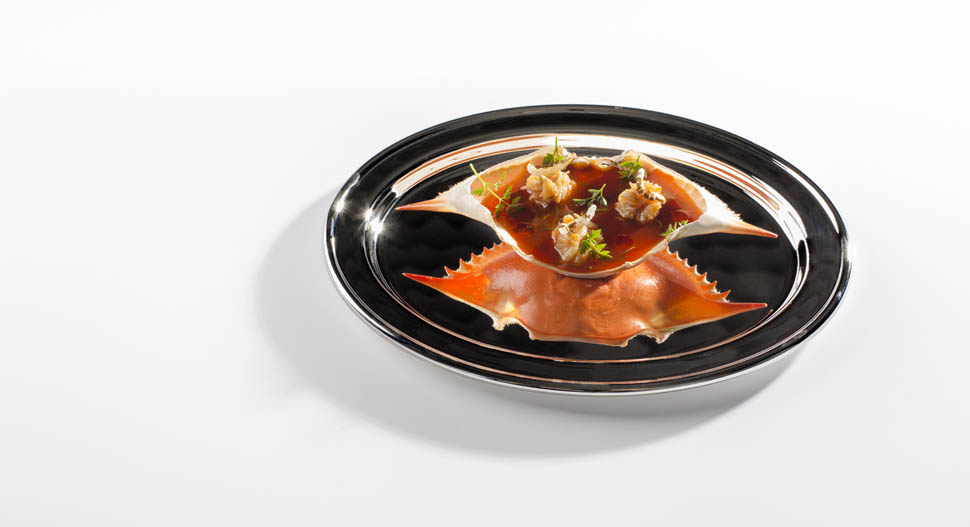
I'm not interested in making a dish that's simply good if it doesn't add value. Since I'm into innovation, I could keep offering dishes that the public embraced ten, five, or three years ago, but my calling is to keep moving forward, not just out of nonconformity, but with the intention of advancing cuisine. Surely from today until tomorrow, I could invent forty dishes with red mullet. But I'm not interested in the craft; I want to innovate until I retire, until the last day. Or at least I want to try," he tells Esquire. Among his recent creations is a dish that aims to evoke the sensation of touch, in the sense of caresses, almost a response to social distancing policies. But Dacosta has also been able to incorporate his feelings of separation, the loss of his brother, and new love.
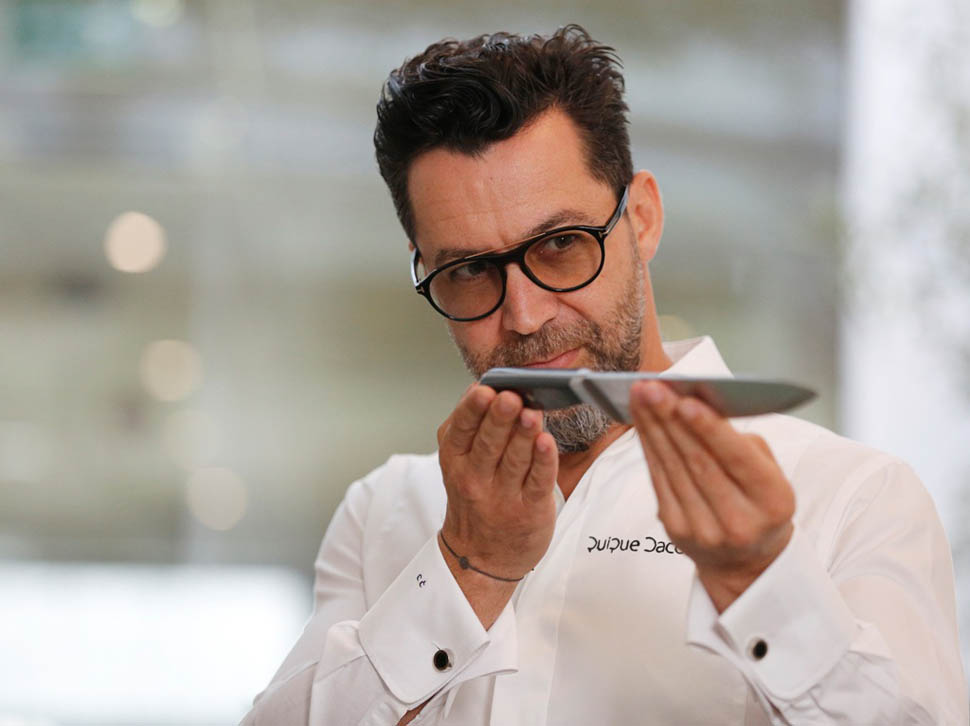
Then comes the controversy. "The truth is, we're going through a complex time. I don't love success as societal acceptance, nor it is necessarily measured by the occupancy rate. Because it doesn't always mean good work. In the kitchen, there's hardly a need anymore for good ingredients, good technique, or cooking skill. You can have a restaurant where neither the food nor the service, nor the dishes are marvelous. Yet, still, be very successful. We live in a kind of bubble where the essence of a restaurant takes a back seat. To me, that's the most disappointing thing about the times we live in. But it's not the fault of cuisine; it's the fault of the restaurant industry, which has placed companies in the pyramid and given them a veneer of beauty and luxury that has nothing to do with the values of gastronomy."
Cover photo: @J.L. Lopez de Zubiria
